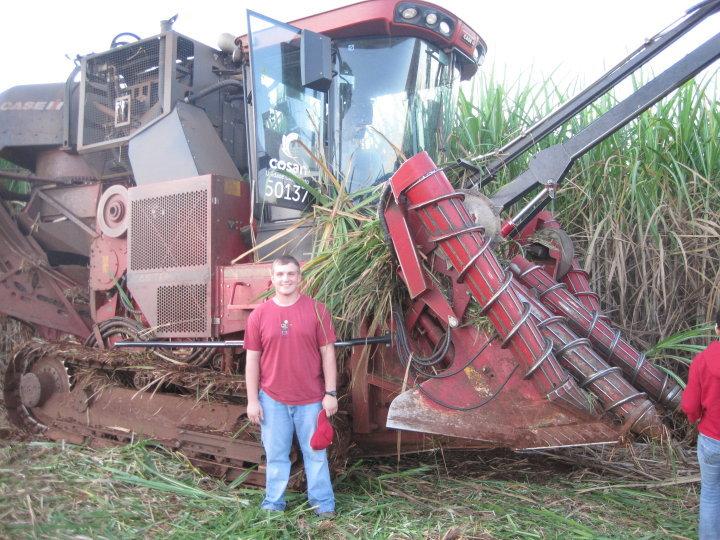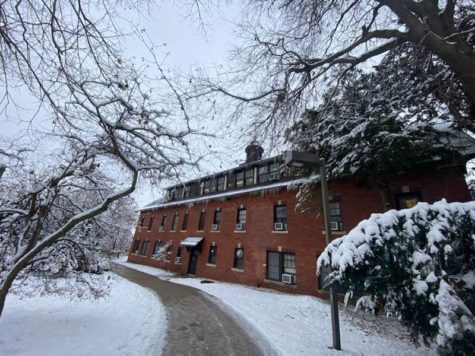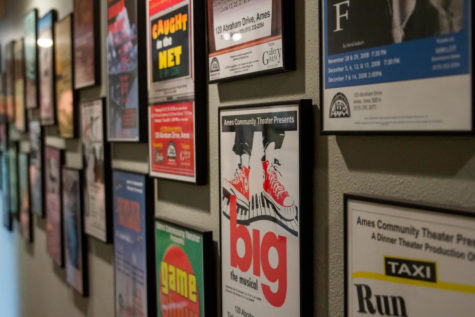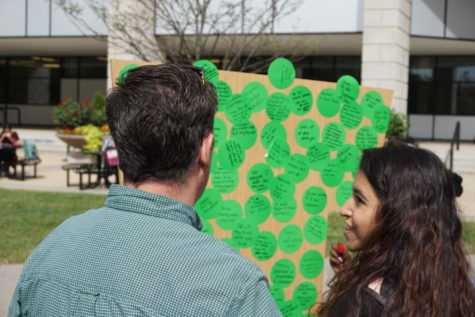Travel course gives agriculture students career advantages
Andy Edson, junior in agricultural business, learns how farmers use a sugar cane harvester on his trip to Brazil during a travel course last spring.
January 26, 2011
With the opportunity to meet potential employers or seek out internships once a semester at the career fair, agriculture-related majors have to find new ways to stand apart from their fellow classmates. There are many ways that students can do this, such as studying abroad, taking part-time jobs to gain experience or even taking a class that will give them a global perspective on the agricultural world.
Though these are all options students can look into at Iowa State, there’s a class unique to the Agricultural and Biosystems Engineering curriculum that can greatly benefit students of any major. The course offered is one that focuses primarily on Brazil and its advances in agricultural development. The professors for the class, Thomas Brumm and Brian Steward, split the course into two parts: A class is taken at Iowa State and following that semester, students travel to Brazil for a hands-on experience.
Andrew Edson, a junior in agricultural business took the course last spring. Edson said besides having to apply through ISU Abroad to get enrolled, it’s a normally structured class.
“We met once a week with Dr. Brumm,” Edson said. “The main focus was to learn the basics of Portuguese and what to expect when we actually got to Brazil.”
After finishing up the course, Edson and other students traveled to the country they had spent a semester learning about. Besides seeing variations in the sizes of farms, Edson also got to see what other crops are planted in Brazil.
“In the U.S., we predominately grow corn and soybeans,” Edson said. “But in Brazil they grow coffee and sugar cane, so we saw a whole new side to the agriculture industry.”
Steward said being exposed to different agricultural practices is the main goal of the course.
“I hope that the students will learn about how agriculture technology is being developed and adopted in Brazil,” Steward said. “In addition, students have the opportunity to experience Brazilian culture as well as people.”
While getting to spend time abroad and furthering their knowledge of the agriculture industry, students are also adding something great to their resume. Edson has experienced firsthand the benefits of taking the course.
“Having the course on my resume creates a great talking point for interviews,” Edson said. “It’s come up in every interview I’ve had since going on the trip.”
Dr. Steward also sees advantages in taking the course. Having a wider knowledge of other country’s agriculture development can prove to be a great advantage.
“Brazil’s economy is developing rapidly and offers huge potential for businesses, particularly in the agricultural sector,” Steward said. “So having experience in Brazil will certainly be of interest to employers.”
Just as the agriculture industry is developing at a high rate, students are also expected to be as dynamic and experienced in the knowledge they acquire in college. Not only is a course like this a great resume builder, it might also give students an edge that potential employers are looking for.

















